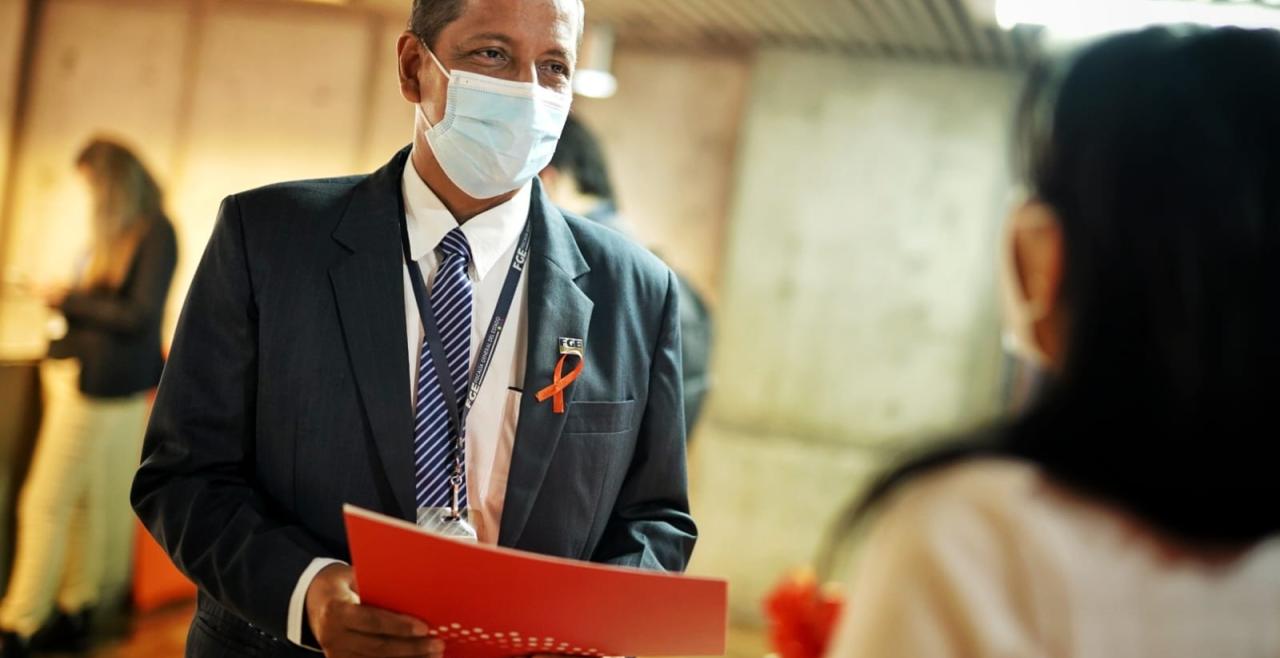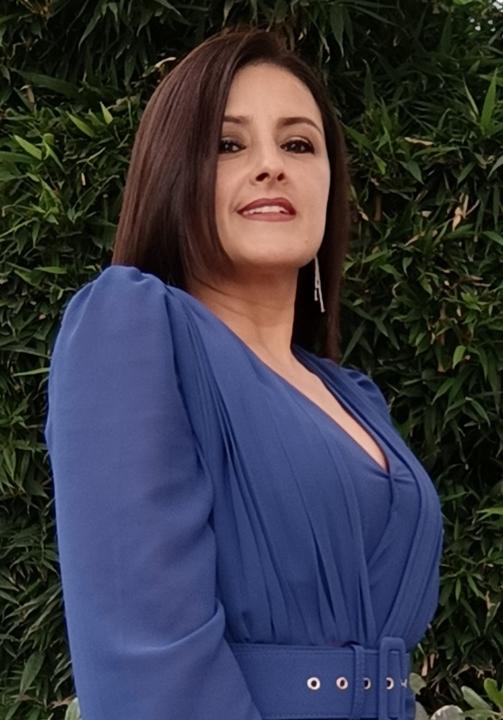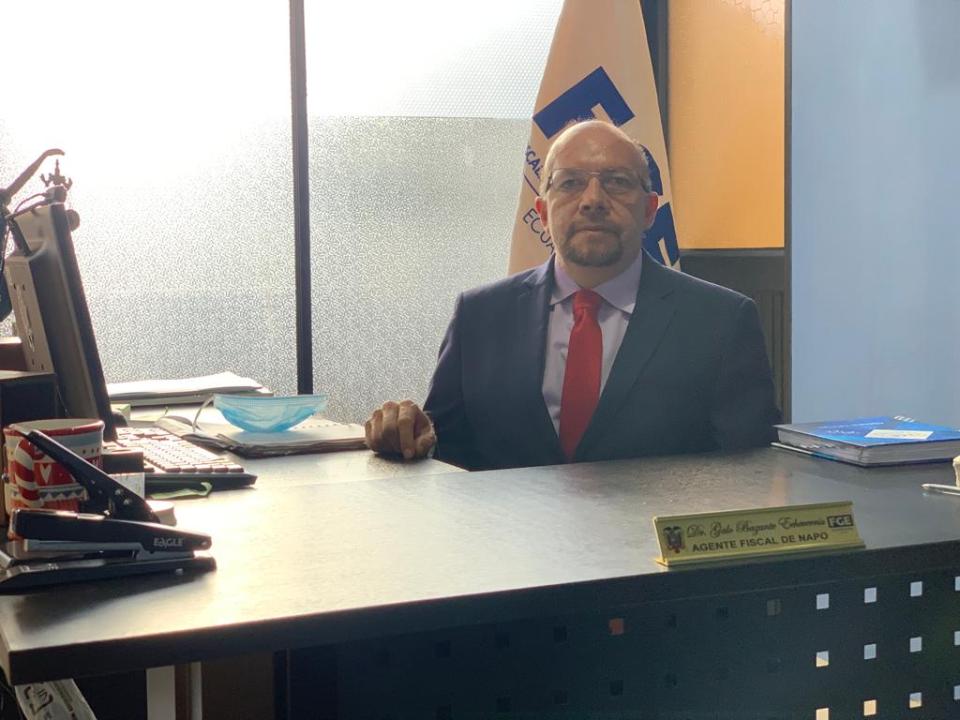National Protocol for Investigating Femicides and other Violent Deaths of Women and Girls in Ecuador: A Prosecutor's Approach

QUITO, Ecuador.- In Ecuador, official statistics report that 65 out of every 100 women - -between 15 and 49 years of age- have experienced some form of violence. From August 2014 to November 2020, 443 cases of femicide were registered[1], and during the pandemic the vulnerability of women, girls and feminized bodies increased and subjected them to situations of permanent danger. According to data from the platform of the Judiciary Council, femicidios.ec[2], in 2020, 157 violent deaths of women were registered, of which 73 were classified as femicides; in 2021, 227 violent deaths of women were registered, of which 116 were classified as femicides. Until the 31st of July 2022, 216 violent deaths of women were registered, including 52 femicides.
According to data from Alianza para el Monitoreo y Mapeo de los Femicidios, 197 gender-related murders of women, adolescents and girls were registered in Ecuador in 2021. From 1 January to 3 September, 206 cases of gender-related violent deaths were registered in Ecuador, of which 85 are femicides, 115 are femicides by organized crime, and 6 are trans femicides. That means that every 28 hours a woman is murdered for gender-related reasons.[3] In this alarming context, the need to strengthen the mechanisms for prevention, protection, and care in cases of gender violence in the country becomes evident.
To address this problem, the State Prosecutor General's Office (FGE) and the Spotlight Initiative publicly presented the "National Protocol to Investigate Femicides and other Violent Deaths of Women and Girls", a document that was signed by the head of the institution, Diana Salazar Méndez, on 24 of November 2021[4].
The construction of this tool relied on the contributions of academia and civil society. At the event, the General Prosecutor highlighted the importance of Ecuador having this instrument, "although the State Prosecutor General's Office already had a Latin American Protocol on Violent Deaths, applicable by the international community, we needed to build our own tool, based on the experience, realities and specific needs of our country," said Dr. Salazar.
Since January 2022, the Spotlight Initiative, together with the State Prosecutor General's Office (FGE), has provided training workshops on the contents of the Protocol, aimed at administrative and field staff of the FGE to enable them to identify cases of femicide, act with due diligence in investigations and guarantee the rights of victims in the investigation process. To date, 113 prosecutors specialized in gender violence, and multi-competent prosecutors have been trained in the contents of the National Protocol.
We interviewed officials from the State Prosecutor General's Office to learn more about the importance and use of this new Protocol.
- ¿ What laws exist to protect women and girls from violence in Ecuador?
Juana Fernández – Gender Expert at the Human Rights Directorate: Ecuador's regulatory umbrella is quite interesting because, since the 1970s and 1990s, the social struggle of collectives in the streets has called for the state to take a much more active role, not only at the legislative level but also at the level of public institutions. In this context, the first norm issued was Law 103, which has now been repealed. Thus, gender violence was understood as a structural problem, i.e, it was not a question of violence being an internal problem but rather a public health problem, and the Ecuadorian state also had to respond through the operationalization of actions from the institutional framework. Thus, this law also established certain measures to protect women victims of violence, but it was still in the pecuniary aspect. The topic of gender-based violence, i.e., women's dignity, was still understood as a tradable topic.
With the 2008 Constitution, which has a very interesting and strengthened dogmatic part, Article 66 establishes that we all deserve a life free of violence. So, the constitution becomes the backbone of the Ecuadorian State to combat gender-based violence. Personal issues are beginning to be understood as political; civil society organizations challenge the state to realize that violence cannot be solved behind closed doors and that it requires comprehensive public policies. As the state takes on a leading role, violence goes from being a financial issue to a criminal issue, and that is why this perception has been implemented since 2014 in the Organic Integral Penal Code (COIP), which includes the criminal offence of femicide, nowadays physical, sexual, and psychological violence is typified and punishable by imprisonment. A historic milestone is the incorporation of femicide as the death of women because they are women, i. e. for reasons of gender, a challenge implemented through legislation that promotes a gender perspective in the justice area.
In 2018 and 2019, the Law on the Prevention and Eradication of Violence against Women and Family Members and its regulations will be implemented and come into force. This law already implements the National System for the Prevention and Eradication of Gender Violence, i.e., the actions of each of the entities can no longer be isolated rather they have to be cohesive and articulated.
And the proposal made by the Law for the Prevention and Eradication of Violence is also interesting since it extends it to other forms of violence which, even though they are not contemplated in the COIP, are also important because they are subsumed in this reality and in this iceberg of violence, such as symbolic violence, political violence, gynae obstetric violence, and so on. This is the normative umbrella that we have at the level of a legal framework in which the Ecuadorian state has to operate without neglecting international human rights standards.
-
Could you give an example of some of these tools that the Protocol provides to serving prosecutor
Juana Fernández: We are working with the Human Resources and Training Directorate of the State Prosecutor General's Office on burnout prevention and occupational health. We cannot talk about public administration's continuous improvement from the perspective of state modernization if we do not guarantee adequate occupational health for our prosecutors and prosecutorial teams who deal with cases of gender-based violence daily and are exposed to sensitive content arising from violence cases.
I believe that the prevention of burnout is one of the fundamental pillars within the Protocol, and this is revolutionary and innovative because understanding the life stories of officials, providing them with spaces for emotional catharsis, strengthening resilience tools and "soft skills," will allow them to put on the shirt of a person before putting on the shirt of an official, and that is wonderful for a public institution. A person assisting a survivor of violence requires empathy, sensitivity, and the prevention of burnout has to be based on this integrative, humanistic, institutional approach.
- What can people and ourselves do in our communities to help end femicide and gender-based violence
Juana Fernández: We have to understand that no one is born violent. No child is violent because he or she wants to be, and no adult is violent because he or she wants to be; instead, it is because there was not a positive upbringing based on gender equality. I believe very much in positive upbringing and education as one of the pillars of rebuilding socio-cultural patterns. So deconstructing gender-based violence starts at home, at educational institutions, at our closest nuclei, and by talking about gender-based violence, we have already conquered a lot.
It is important not to naturalize violence through the legitimization of its patterns, and this is achieved through education, from the perspective of achieving a positive upbringing in Ecuadorian homes. Regarding crime prevention, I agree, talking about the channels for reporting, socializing in different spaces about how to make a complaint, that silence is an accomplice of the aggressor, that we are not alone so that the victim can understand the situation and the circle of violence they are going through. Build networks of support and collaborative bridges between civil society organizations and public institutions for the attention and improvement of cases of gender-based violence. Because a victim who comes to denounce this has gone through a very hard process to decide to speak out, and this also inspires other victims to break the silence.
- ¿Why is this new Protocol necessary? What changes?
Guido Quezada – Director of Training and Mission Strengthening of the State Prosecutor General's Office:
Providing tools to identify the route of action in the face of this type of crime, or this type of death classified as femicide in the Organic Integral Penal Code (COIP), allows for the development of skills and abilities to investigate these crimes and not to lose the first signs that are fundamental for the investigation. This strengthens investigative capacities for the theory of the case and the gathering of evidence. The objective is to develop skills that guarantee victims' rights throughout the pre-procedural and criminal procedural phases. This is a tool where public policy is grounded and provided to prosecutors and their teams so that they can technically and accurately investigate this type of violent death of women and girls in Ecuador.
- At the launch event, the General State Prosecutor said, "The Protocol will provide prosecutors, secretaries and assistants theoretical and practical tools for the criminal investigation of femicides and other crimes involving the violent deaths of women and girls". Could you give an example of some of these tools?
Karina Castillo – Loja Provincial Prosecutor in charge of one of the Gender Violence Prosecutor's Offices: Several tools are available in this Protocol and in the UN Women's Model Latin American Protocol for the Investigation of Gender-Related Killings of Women. For example, in the design of the investigation, a methodological program is established that allows for the correct planning and organization of the investigative work; it is important to carry out an exhaustive analysis of the indications and signs of a presumed femicide, as well as the criminal modality of the violent death for gender reasons. In addition, the National Protocol presents a feminist model that guides us and provides us with tools to contextualize the different spheres in which this extreme violence against women occurs.
The National Protocol provides us with specific guidelines for investigating crimes of femicide and other violent deaths of women and girls, as well as requesting comprehensive reparation measures; the route that must be established from the moment of knowledge of the presumed criminal death of a biological woman or a diverse woman (due to her gender condition, trans woman) is primordial becaus[5]e, as prosecutors, we have the duty to investigate with thoroughness, efficiency, speed, as well as with a gender perspective, to guarantee an adequate response to the facts. The Protocol guides us in our investigative actions, providing us with valuable instruments that become a practical guide in developing our work.
- To what extent does the knowledge imparted contribute to a better approach to cases of femicide?
Karina Castillo: The knowledge imparted helped develop an adequate investigative strategy that will undoubtedly contribute to improving the quality of the pre-procedural and criminal procedural investigation in accordance with our commitment to carry out our work precisely and following international standards. Thus, knowledge of the route to be applied when the crime is discovered will allow us to effectively collect the first indications or elements of proof; for example, requesting information from the relevant institutions, such as the ECU 911 Integrated Service, audios from emergency calls, video recordings from security cameras; knowing that there is a specialized unit such as DINASED to direct the investigation in coordination with the Public Prosecutor's Office is essential, as this unit has personnel specialized in these cases.
Expanding our knowledge will always allow us to carry out our work following the international standards developed so far for investigating violent deaths. In our country, as femicide has already been classified as a crime that violates women's right to life, we will have more effective tools and more extensive knowledge that will allow us to provide a better service to society.
Galo Bazante Echeverría – Napo Province Prosecutor: This course helped to improve the knowledge with experiences on gender topics, to carry out investigations better, and to avoid stereotypes. Sometimes it is considered that a woman, if she is dressed in one way or another, would be giving the reason for the crime to be committed, and this should not be so; these considerations are very important to address femicide cases, it is the first thing we have to know and investigate in this way.
* Download the National Protocol for the Investigation of Femicides and Other Violent Deaths of Women and Girls at this link: https://www.fiscalia.gob.ec/wp-content/uploads/2021/11/Protocolo-Nacional.pdf
**Originally published in: https://ecuador.unwomen.org/es/stories/noticia/2022/10/protocolo-nacional-para-investigar-femicidios-y-otras-muertes-violentas-de-mujeres-y-ninas-en-el-ecuador-una-aproximacion-desde-los-y-las-fiscales
[1] ENVIGMU 2019
[3] Source: Fundación ALDEA, 2022. http://www.fundacionaldea.org/noticias-aldea/mapasfeminicidios2022
[4] See full news item: https://ecuador.unwomen.org/es/noticias-y-eventos/articulos/2021/12/pro…
[5] National Investigation Directorate for Crimes against Life, Violent Deaths, Disappearances, Kidnappings and Extortion



